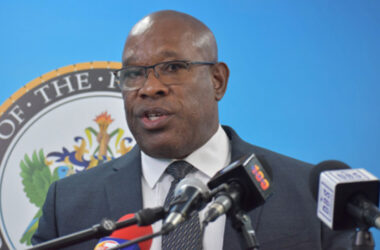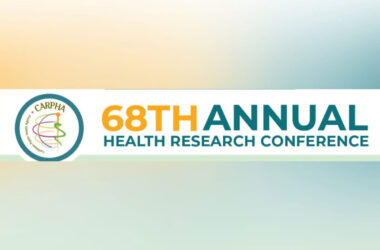World Health Day was observed on 7 April 2021, under the theme “Together for a fairer, healthier world”. It is a call for urgent action to eliminate health inequities and mobilise action to attain better health for all and leave no one behind.
Health inequities are unjust, unfair, and widen the equity gaps, preventing people from reaching their full potential due to where a person is born, lives, grows, and works. These health inequities are largely felt among those who are disadvantaged and often experience discrimination which may lead to illnesses, morbidity and premature mortality.
“Reducing health inequities is important because health is a fundamental human right. Everyone deserves to live a healthy life regardless of their age, gender, ethnicity, disability, economic situation or employment. Health inequities go against the very fabric of social justice because they are avoidable,” stated Dr. Joy St. John, Executive Director at the Caribbean Public Health Agency (CARPHA).
To promote prevention, a whole of society approach is necessary. It is important to work together with those who are in affected communities, address inequity issues, implement solutions, and work with governments to create a harmonised system. In addition, health information systems should be able to identify vulnerable populations, and health inequities should be monitored to ensure everyone has access to quality health services without discrimination.
Several factors contribute to inequities such as poverty, unemployment, environmental challenges, gender inequalities, and most recently, the emergence of COVID-19. The pandemic has had grave consequences for people already experiencing inequities. It has disproportionately impacted those people already socially and economically disadvantaged.
“The COVID-19 pandemic revealed the difficulties in ensuring access for persons with chronic diseases, vulnerable communities, and those facing inequalities, to receiving healthcare. We need to ensure that the rights of persons living with chronic diseases are not violated, and the provision of chronic disease prevention and control services continue for children, adolescents, adults and vulnerable populations during COVID-19,” said Dr. St. John.
CARPHA supports Member States’ access to quality health care and essential medicines, by providing public health services in areas such as laboratory testing, environmental health, surveillance, program development and policy advice. This contributes to a positive effect on the provision of services to communities and ultimately on their health and well-being.
Through its Caribbean Regulatory System, CARPHA helps Member States to reduce the cost of quality medicines to consumers and the health system, thereby improving accessibility and affordability.
CARPHA collaborates with national, regional and international partners to ensure Caribbean people have access to an adequate and sustainable supply of potable water for consumption, to satisfy hygiene and sanitation, while maintaining availability for the sustenance of ecosystem functionality.
CARPHA urges Member States to develop and implement fairer policies and actions to achieve health equity. Countries are encouraged to strengthen intersectoral, regional and national action to address the social determinants of health approach – gender equity, right to health, the monitoring of health inequalities, strengthening of health systems, and knowledge dissemination.
Stigma and discrimination also contribute to reducing access to social determinants of health, rights, and preventive services, including delay in seeking healthcare, must be addressed at individual, organisational and societal levels.
This year CARPHA joins the world to observe World Health Day. It is a call for all leaders to monitor health inequalities and address their root causes to ensure that everyone has access to the living and working conditions that are conducive to good health and to quality health services where and when they need them, and to invest in primary health care to achieve health for all by all.
We all need to ensure that no one is left behind.














